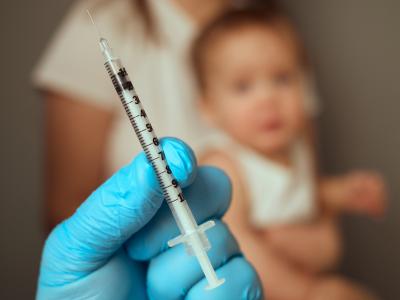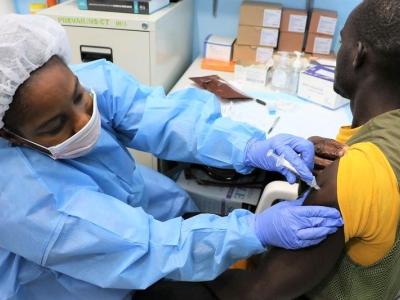Jun 20, 2007 (CIDRAP News) – Federal health officials last week announced the awarding of contracts totaling $132.5 million to help two vaccine producers get ready to start churning out vaccines in the event of a flu pandemic.
The Department of Health and Human Services (HHS) awarded $77.4 million to Sanofi Pasteur and $55.1 million to MedImmune Inc. to retrofit existing vaccine production facilities and keep them in ready condition for 2 years to produce pandemic flu vaccines, with an option to extend the time to 5 years.
The goal is that when the retrofitting is done, the facilities together will be capable of producing about 100 million doses of a pandemic vaccine within 6 months of the start of a pandemic, according to Marc Wolfson, a spokesman for HHS's Office of the Assistant Secretary for Preparedness and Response (formerly the Office of Public Health Emergency Preparedness).
That amount represents about 16% of the HHS goal of having enough domestic capacity to make 600 million doses of pandemic flu vaccine—enough for 300 million people—within 6 months after a pandemic hits, Wolfson told CIDRAP News.
The renovations also will equip the two companies to produce prepandemic vaccines year-round, HHS said. Currently production of prepandemic vaccines is limited to the 3 months each year when facilities are not tied up with making seasonal flu vaccines, HHS officials said.
The HHS contracts call for the two companies to maintain "warm base operations" in the renovated facilities for 2 years, meaning they will not be shut down. The contracts include options for another 3 years of warm-base operations, which would require more money, the agency said.
Sanofi Pasteur, located in Swiftwater, Pa., has been the leading producer of seasonal flu vaccine for the US market in recent years. MedImmune, based in Gaithersburg, Md., makes the nasal-spray seasonal flu vaccine FluMist, which uses a live, attenuated virus.
Sanofi makes the only prepandemic H5N1 flu vaccine licensed so far by the Food and Drug Administration. HHS has stockpiled the equivalent of 14.5 million 90-microgram doses of the vaccine, according to Wolfson. That's enough for about 7.25 million people at two doses each. HHS has a goal of stockpiling enough prepandemic flu vaccine for 20 million people.
Wolfson said the current US annual production capacity for prepandemic flu vaccines is 16.5 million doses. Besides Sanofi, he said, GlaxoSmithKline and Novartis are also making prepandemic H5N1 vaccines for the US stockpile. Both companies also market seasonal flu vaccines in the United States.
Sanofi is building a new flu vaccine plant in Swiftwater and hopes to have it completed in time for the 2008-09 flu season, company spokeswoman Patty Tomski told CIDRAP News. The company will contribute about $25 million to the renovation of its existing plant scheduled under the HHS contract.
"The contract covers costs for design, retrofit and the maintenance of the facilities at a state of readiness so the company can switch to pandemic influenza vaccine manufacture at the HHS's request," the company said in a news release. Tomski said the plant will be able to start producing a pandemic vaccine at any time of year.
The retrofitting is expected to be completed in late 2010, according to Tomski. The renovated plant will use the conventional production method of growing flu viruses in eggs, she reported.
With the renovation, the company expects to maintain the plant's existing production capacity of about 50 million doses a year, Tomski said. The new plant is designed to add capacity for another 100 million doses of seasonal flu vaccine annually.
MedImmune will contribute about $14 million to the retrofitting of its facilities under the HHS contract, the company said in a news release.
The work will affect MedImmune's manufacturing and testing facilities in Santa Clara and Mountain View, Calif.; its blending, filling, packaging, and warehousing facilities in Philadelphia and Salem, Pa.; and a storage and distribution center in Louisville, Ky., according to company spokeswoman Karen Lancaster. As part of the renovation, she said, facilities will be expanded to maintain capacity for making seasonal flu vaccines.
MedImmune uses an egg-based system to make its intranasal vaccine. The same approach will be used to make pandemic vaccines, though the company is developing a cell-based production system, Lancaster said.
See also:
Jun 14 HHS news release
http://www.hhs.gov/news/press/2007pres/06/20070614a.html
Jun 14 Sanofi news release
Jun 14 MedImmune news release


















